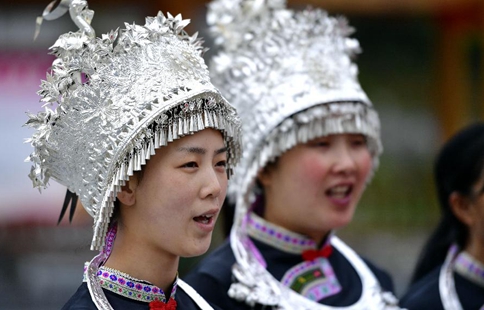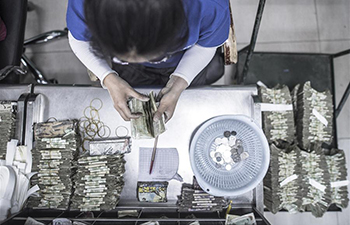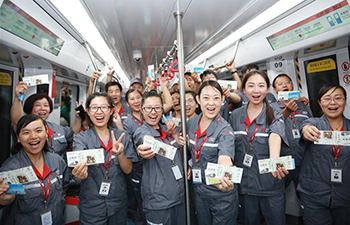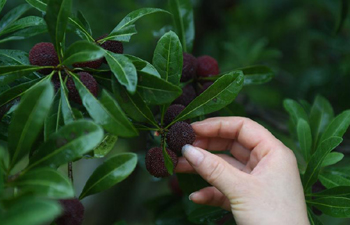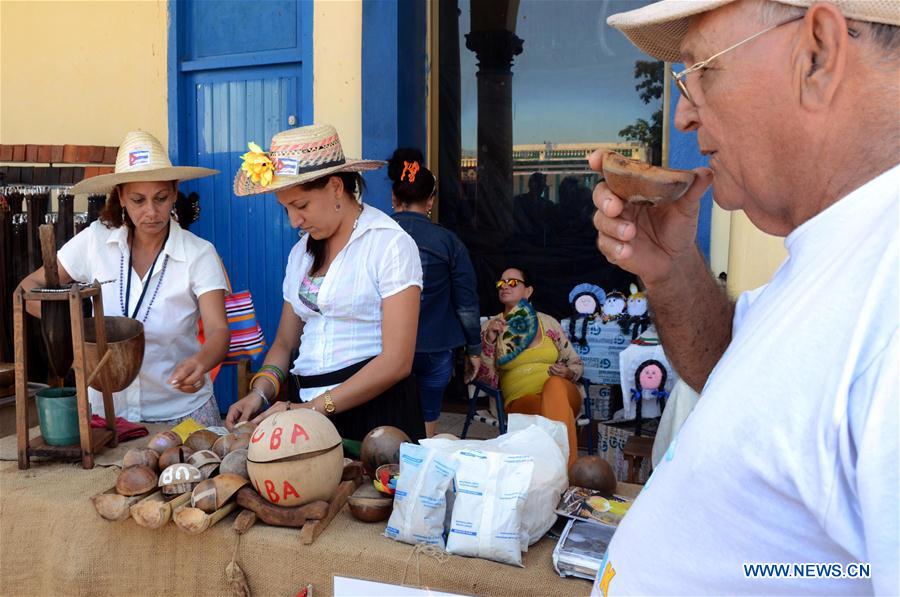
Vendors sell coffee made by themselves in Granma province, Cuba, on June 9, 2017. In Granma province, where Bayamo is located, Cuba's self-employed, as this growing segment is called, contributed nearly 40 million pesos (39.8 million U.S. dollars) to the provincial government in the first four months of the year. Daniel Silveira, vice president of the local government, told Xinhua the cooperatives are a good source of jobs and have benefited as many as 100,000 local residents -- if taking into account not just those employed, but also their families. (Xinhua/Joaquin Hernandez)
by Raul Menchaca
BAYAMO, Cuba, June 13 (Xinhua) -- Luis Chacon and his partners have turned a once languishing state-owned restaurant in the historical center of Bayamo, a city in eastern Cuba, into a thriving business.
Chacon, 36, owes their success to the Cuban economic reforms that have encouraged the development of socialist-style private enterprises.
"We have made progress by leaps and bounds, as they say, in learning as we go about things we were not experts on, and we are still learning," said Chacon, who has been trying to revive the old restaurant with a seating capacity of 120 over the recent three years.
"We earn what we work for," said Chacon, noting that sales of the restaurant have increased 94 percent since they took over the flagging business. Moreover, the restaurant is now rated among the top 10 restaurants in town, according to travel planning website TripAdvisor.
Chacon and his partners' restaurant is one of just seven non-agricultural cooperatives established in this region, where some 24,000 Cubans have launched their own business ventures.
For decades, the Cuban state was the country's sole employer. In 2011, the government launched a reform package to slim down the bloated public sector by encouraging such cooperatives.
In Granma province, where Bayamo is located, Cuba's self-employed, as this growing segment is called, contributed nearly 40 million pesos (39.8 million U.S. dollars) to the provincial government in the first four months of the year.
Daniel Silveira, vice president of the local government, told Xinhua the cooperatives are a good source of jobs and have benefited as many as 100,000 local residents -- if taking into account not just those employed, but also their families.
"The self-employed worker is defined in the modernization of the country's economic model as a new management form that is going to coexist with the socialist state-owned companies or mixed (public-private) companies," said Silveira.
Heriberto Duran retired after working 30 years in a state-run company. Now he opened his own family business, selling traditional candies made of manioc, also known as cassava or yuca.
The whole family, including his wife, children, grandchildren and even great grandchildren, help make the candies.
The business, the only one of its kind in the province, according to Duran, has helped improve the family's living standards.
"You live a more relaxed life up to a point, because it (making the candies) entails a process that goes from gathering the yuca to peeling it, shredding it, pressing it, drying it and toasting it," said Duran.
Though it hasn't made him rich, selling the candies has boosted the family income, he said. What satisfies him even more is that the business keeps alive a local culinary tradition that has almost died out.
A few meters away from the corner in Bayamo where Duran sells the sweets, retiree Yurenia Llamis sells home-ground coffee served in jicaras, little cups made from the dried gourds of calabash trees, which is an old custom across the Cuban countryside.
"I'm doing really well, and what's more, I like dealing with people," said Llamis.




